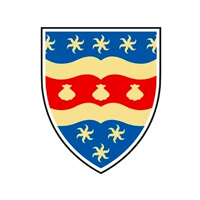fees waived
Mathematics, BSc (Hons), with industry placement
University of Plymouth, United Kingdom
Subject ranking
UK / Times 44th
UK / Times 44th
UK / Guardian 54th
Costs
food & rentS$16.8K / year
Entry requirements
Scholarships
Unlimited quantity
Unlimited quantity
Unlimited quantity
Limited quantity
Information
Code
Code
Intakes
Website (External)
Programmes
Information
Duration
2028
Course summary
Whether you are drawn to it because of the exhilaration of solving problems, the beauty of an elegant or unexpected result, or its power and adaptability to model the world around us, studying mathematics at Plymouth trains you to think both systematically and creatively. These are skills that are valued in today’s economy and mathematics graduates are sought after by a wide range of employers.You can take any direction you want on our highly flexible course, culminating in your choice of final-year project. Take the opportunity to personalise your degree - by choosing appropriate modules you can graduate with the following degree titles: BSc Mathematics, BSc Mathematics with Education or BSc Mathematics with Finance.
- Our degree offers modules in all key areas of pure and applied mathematics, statistics and theoretical physics, including a wide choice of final-year options inspired by the research expertise of our lecturers. This allows you to follow your interests and shape your future career.
- You will acquire skills which are highly sought after by employers: problem solving skills, knowledge of computing languages and mathematical software packages as well as presentation and communication skills.
- Enjoy new facilities – state of the art lecture theatres, computer laboratories, study and social spaces – in our £50 million teaching and research building opening in 2023.
- Benefit from being part of the close-knit, collaborative and supportive family that is Mathematical Sciences at Plymouth. This includes small group tutorials, study space next to staff offices, our lecturers’ open-door policy, student-led learning sessions and the Maths Society.
- Meet the mathematics of sustainability and climate change in our Mathematics of Planet Earth module.
- An optional but recommended paid placement year primes you for the career you want. Students who have taken a placement tend to attract multiple job offers
- You have an opportunity in the final year to carry out an in-depth research project on a mathematical topic of your choice, supervised by an expert in that field. This involves producing a 50 page report and presenting your work at a poster session.
Modules
In Year 1 you will learn the underlying mathematics that underpins the rest of your degree and master coding in the industrial software Python, right from the start. You’ll begin by building on the mathematical skills and topics you learnt at school, studying six core modules including calculus, linear algebra, numerical methods, pure mathematics, and probability. We’ve structured the curriculum so that all of our students acquire a common mathematical expertise, so you’ll also have the flexibility to move between courses as you progress.In your second year you'll expand your knowledge with topics including vector calculus, complex analysis, differential equations, transform theory, algebra and mathematical statistics. You will also have a case study-based introduction to operational research, the branch of mathematics developed for better management and decision making, and powerful Monte Carlo methods for simulating complex problems.You'll have the opportunity to participate in an optional but highly recommended placement year, providing valuable paid professional experience and helping make your CV stand out. Typically students are paid around £17,000 and placement providers have included the Department for Communities and Local Government, Fujitsu, GSK, Vauxhall Motors, VirginCare, Visteon and Jagex Games Studio.In your final year choose from a wide range of modules covering pure and applied mathematics, and operational research, as well as theoretical physics and statistics. A choice of small group case studies and the additional option of an individual project offer you the chance to study an interest in depth. You may opt to study a school-based placement module.
Professional bodies
Professionally accredited courses provide industry-wide recognition of the quality of your qualification.- Mathematics and its Applications, Institute of
Qualified teacher status (QTS)
To work as a teacher at a state school in England or Wales, you will need to achieve qualified teacher status (QTS). This is offered on this course for the following level:- Course does not award QTS
In Year 1 you will learn the underlying mathematics that underpins the rest of your degree and master coding in the industrial software Python, right from the start. You’ll begin by building on the mathematical skills and topics you learnt at school, studying six core modules including calculus, linear algebra, numerical methods, pure mathematics, and probability. We’ve structured the curriculum so that all of our students acquire a common mathematical expertise, so you’ll also have the flexibility to move between courses as you progress. In your second year you'll expand your knowledge with topics including vector calculus, complex analysis, differential equations, transform theory, algebra and mathematical statistics. You will also have a case study-based introduction to operational research, the branch of mathematics developed for better management and decision making, and powerful Monte Carlo methods for simulating complex problems. You'll have the opportunity to participate in an optional but highly recommended placement year, providing valuable paid professional experience and helping make your CV stand out. Typically students are paid around £17,000 and placement providers have included the Department for Communities and Local Government, Fujitsu, GSK, Vauxhall Motors, VirginCare, Visteon and Jagex Games Studio. In your final year choose from a wide range of modules covering pure and applied mathematics, and operational research, as well as theoretical physics and statistics. A choice of small group case studies and the additional option of an individual project offer you the chance to study an interest in depth. You may opt to study a school-based placement module.
A local representative of University of Plymouth in Singapore is available online to assist you with enquiries about this course.

